In Catherine Filloux’s newest play, White Savior, a Black journalist’s tweet goes viral and tees up the right dose of tension to anchor the story’s acute contemporary relevance. The tweet reads, “White savior complex distracts organizations from seeing the fundamental flaws of human rights law.” It accompanies a video clip of Jean, a human rights activist and researcher, reciting verses from the famous Emma Lazarus poem The New Colossus during her Congressional testimony.
What follows is a serious — and frequently humorous — inquiry about whether or not the strong sisterly bond two women share will withstand their polarized political beliefs and how good faith activists and supporters can become sincere, effective allies and avoid being labeled by the ‘white savior’ complex.
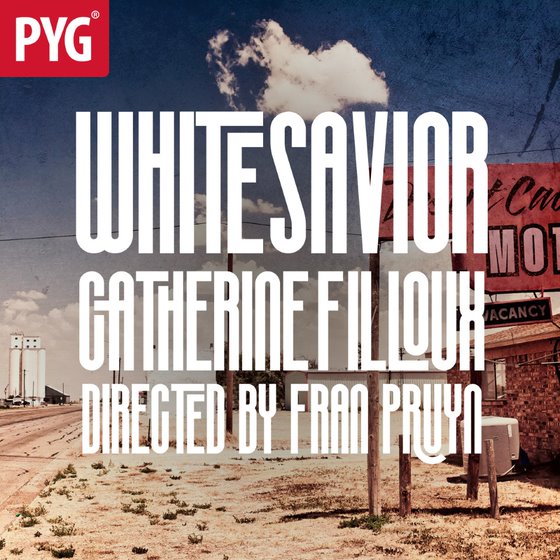
Salt Lake City’s Pygmalion Productions gives Filloux’s play a solid, generous, satisfying world premiere in a virtual performance, directed by Fran Pruyn and filmed by Wonderstone Films. The production is available for audiences through the remainder of November at the Pygmalion Productions website. It is free and the company is accepting donations as well.
The play’s first screening occurred just two days before the presidential elections. In an interview with The Utah Review, just three days after voting ended and the country awaited news of the election of a new president, Filloux was asked if she saw White Savior differently, given that she set the story in 2019. “For me honestly, there is not much difference,” she explains, “because it speaks to so many issues that are completely current. I think that many issues were present before 45 was elected and we are a truly divided country. My expectations were to get the play out before the elections.”
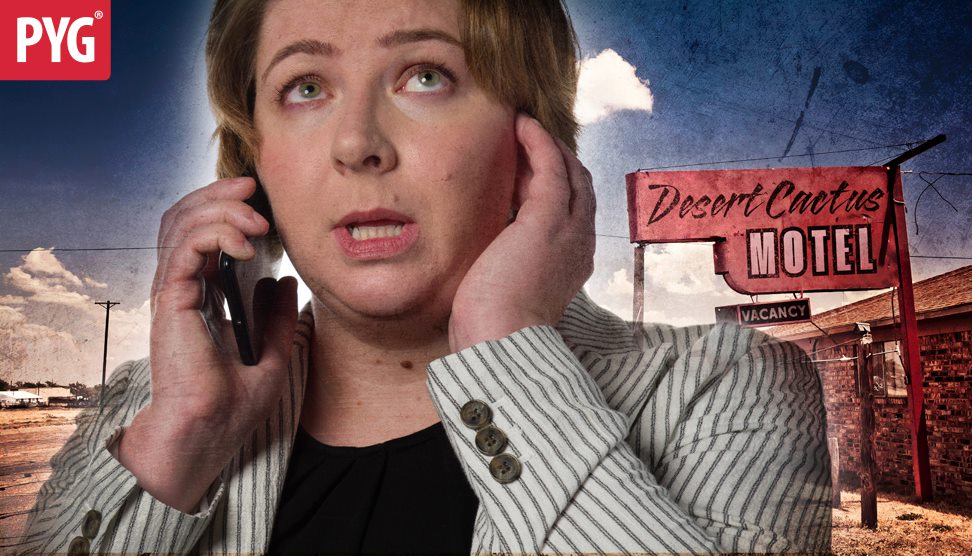
In White Savior, Jean (Liz Whittaker) is passionate and tireless in her work for securing the rights of immigrants and of preventing families from being separated. Her sister Susan (April Fossen) is a conservative, who nevertheless loves her sister unconditionally and wishes that Jean would spend more time with her family. Susan’s daughter Theresa (Sydney Shoell), who is graduating high school with the honors that would place her into a solid university, adores her aunt and contemplates carving out her independent path. Edward (Calbert Beck) is the journalist and teacher whose appearance becomes central to weaving the thematic strands of Filloux’s story.
Filloux, an award-winning writer who also has been a Fulbright Senior Specialist in playwriting in Cambodia and Morocco, says that an earlier version did not have Theresa as a character. With suggestions by Pruyn and Filloux’s colleagues, Theresa’s character was added to the play. In fact, this is the first play she has written in which a character appears for the first time in the story’s final scene and no doubt that Theresa’s presence catalyzes the narrative’s direction toward reconciling all of the key plot points.
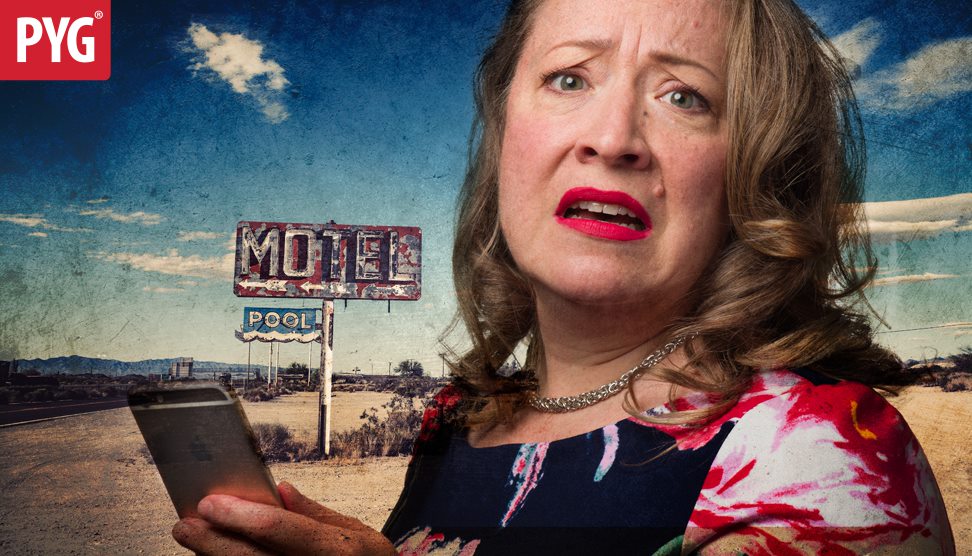
Filloux says she was attracted to the idea of situating the story around two sisters but she did not have specific individuals or images in her mind, as she developed the story. Susan turns out to be very protective not just of her daughter, who is thinking about taking a gap year before starting college, but also of her sister, whom she worries that her activism seems always to take priority over their family ties. Meanwhile, Edward becomes an important teacher to Jean.
Susan is infuriated by the tweet and is shocked to learn that a clip of her sister on a nude beach also has been shared widely on social media. Intent on revenge, Susan confronts Edward in his office, demanding that he retract the tweet. When Edward asks Susan if perhaps her sister should be the one demanding an apology, Susan instantly rises to her sister’s defense:
You have no idea — she is a selfless person who has given her life — and I mean her whole life — she has no children, probably no friends, she lives in Hell’s Kitchen — alone — to helping immigrants and children. This is a person who when she was in nursery school single handedly saved the life of a duckling…
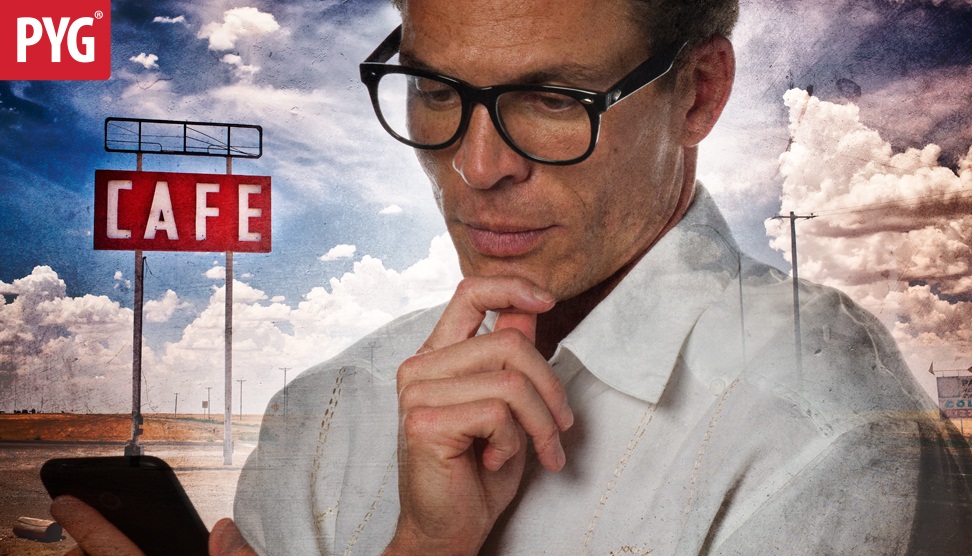
The encounter, however, ends badly, as Susan flings the bowl of Ethiopian lentils that Edward was eating for lunch at him. “Ironically, Susan’s decision to go and meet this person and attack him has some consequences that are surprising,” Filloux adds.
Jean’s encounter with Edward goes much differently. “One thing I truly believed in my heart is that the character of Jean is so committed to her work as a human rights person and as a dogged fighter,” Filloux says. “It doesn’t bother her.”
The scene pops with excellent foreshadowing. Jean tells Edward she “actually had no problem” with the tweet, adding that she agrees with his argument about human rights law being ambiguous. Edward responds, “Exactly and money is not. We allow plenty of people into our country, because they have money. And the U.S. uses torture and drone strikes, which should be tried at the Hague.” Jean responds, “I’m so happy you do what you do. The rigor, the intellectual resilience, I know ‘resilience’ is a problematic word, but that kind of dogged thinking you provide in your articles, in your activism…” Edward immediately corrects Jean, emphasizing that he is not an activist nor does he have any interest for entering politics. Jean tells him, “Well, what you do gives me some hope. I think about quitting my job every day.” She follows up by asking Edward, “Is the real problem that we humans are unable to change?” Edwards says, “That might be one of the favorite questions of white privilege. I have seen plenty of humans have to change. And those humans are asked to do so again and again.”
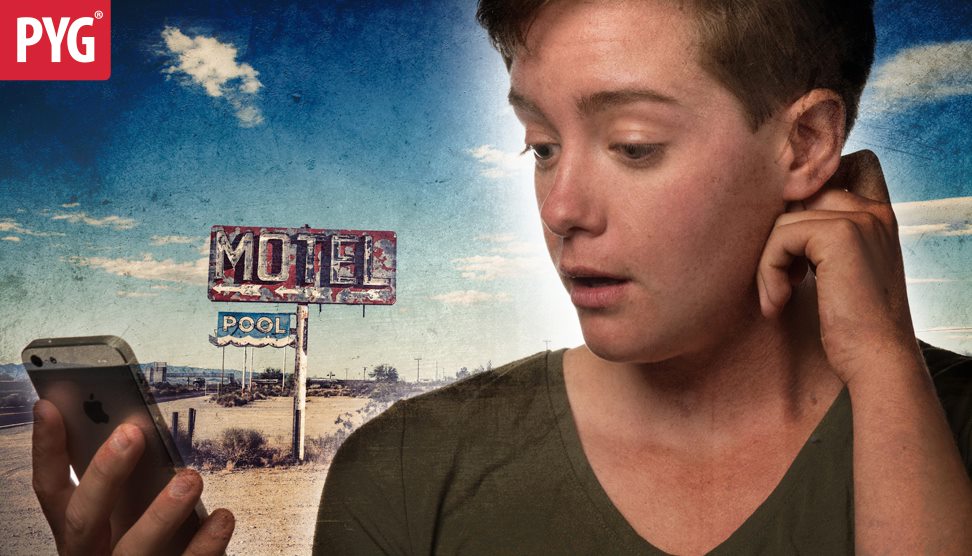
What stands out in Filloux’s writing is her finely balanced consideration in which audience members can be just as sympathetic to Susan as they are to Jean and to the emerging instructive roles not just of Edward but also of Theresa. This is evident when the play closes, with all four characters at a motel near Texas’ southern border (Desert Cactus). Filloux says that touches of humor certainly humanize and prevent the characters from becoming political cliches or caricatures. She recalls that in the talkback following the premiere screening, her brother — who is a pediatric neurologist based in Salt Lake City —- said that the character he responded to most strongly was Theresa, the youngest person in the story. “What do we owe to that generation?” Filloux adds. “We have to pay attention.”
The actors interpret their characters credibly as complex, emotional, sympathetic human beings. This particular ensemble rises eminently to premiering a play in unusual circumstances that hopefully will have its live stage premiere soon enough. Indeed, if we have any chance of cooling off the polarizing heat in the aftermath of the elections, many viewers could benefit by taking a cue or two from the examples of the characters drawn in the story line of White Savior.
For more information, see Pygmalion Productions website.
